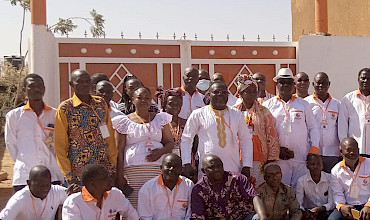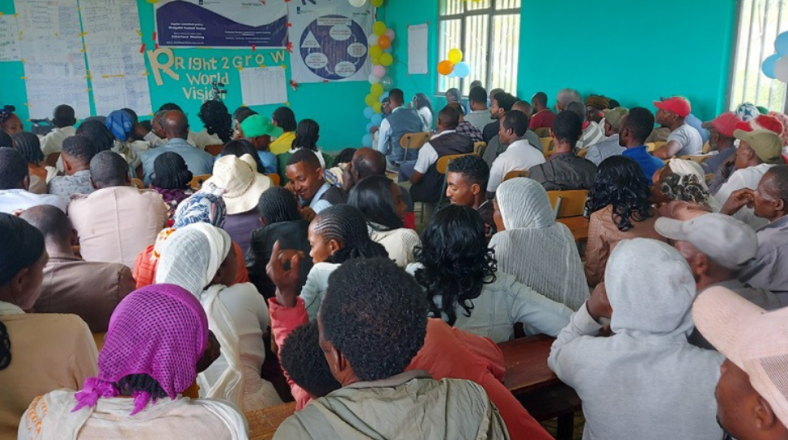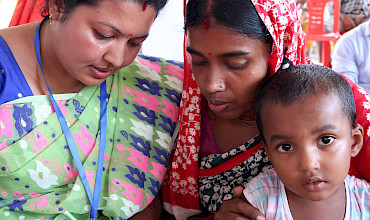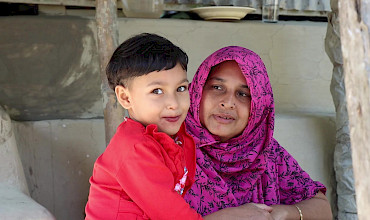
Right2Grow is proud to be published in the Power of Voices special edition Vice Versa publication. This is a showcase of the fascinating stories and reports from the Power of Voices partnerships, in which shifting the power is central to programming. The 172-page issue provides a rich picture of Dutch development cooperation through civil society organizations in 2024.
Our team in Ethiopia are spotlighted in the issue, describing the way in which their community action have helped keep their local governments accountable. Joris Tielens from Vice Versa worked with our partners in Ethiopia to record their story:
Every child has the right to grow up in health - and you need good nutrition and WASH facilities for that. When people hold their own administrators accountable when these are lacking, things change: their data analysis proves to be an effective way to check that money is getting to where it needs to go. 'We teach them that anyone can do this: it's not complicated, you just need to pick up a few skills for it, so that's what we do.'
It used to be a long journey for pregnant women around Fendika, in Ethiopia's Amhara region, if they wanted a safe delivery and proper care for their newborn child. There was a health centre, but there was no ultrasound machine or the ability to do blood tests - those who needed care had to go to a town further away.
And that had to change, the women themselves decided, and first they discussed what were the biggest problems for them when it came to the health of their children. In Ethiopia, this is not a given: infant mortality is high, malnutrition is common and 37 per cent of all children are immature. The priority for the group of women was to improve maternity care at the Fendika health centre. They succeeded: after a series of meetings and talks with local administrators, the women managed to convince the centre to invest in an ultrasound machine and a device that allows you to test blood. The money needed for it - 15,300 euros - was mainly raised by thousands of people from the community, but the local government also contributed, to a smaller extent.
A whole process preceded this, Abdoelhafiz Hassen tells us by phone from nearby Debre Markos, a town in the region's south. He is a local employee of the Right2Grow partnership and is employed by the Organisation for Rehabilitation and Development in Amhara (ORDA), a local NGO. He has spent the past two years training people in the community, including these women, as well as grassroots organisations, local administrators and religious leaders. The trainings make people aware of the importance of good nutrition, as well as the importance of clean water, sanitation and hygiene, says Hassen. These things are all necessary for children to grow up healthy:
'In the trainings, they learned in the community to develop a vision and set priorities together,' he continues, 'and then to advocate their goals to local administrators and the health centre.'


